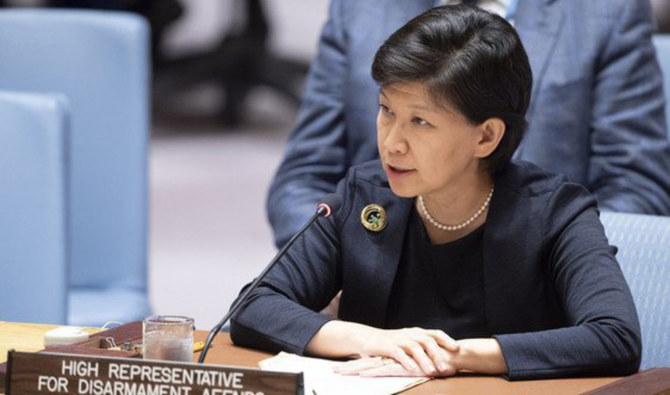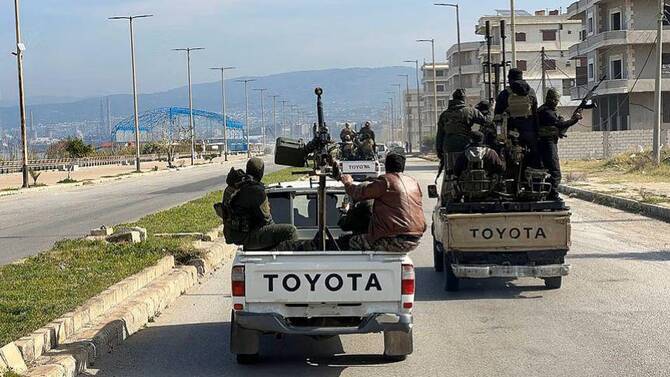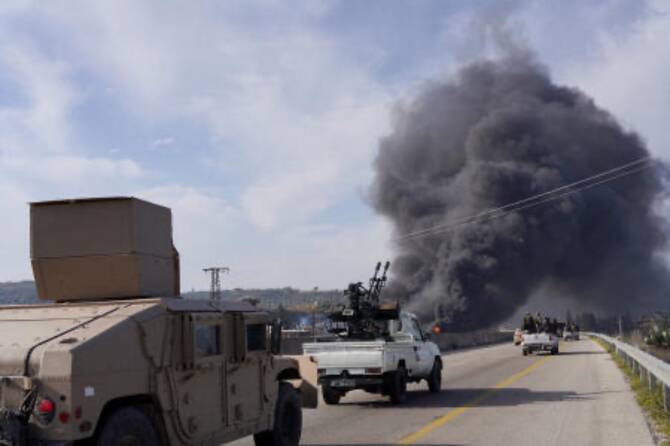NEW YORK: Gaps and inconsistencies remain in the Syrian government’s declaration about its chemical weapons, the UN’s disarmament chief told members of the Security Council on Thursday.
Izumi Nakamitsu, the under-secretary-general and high representative for disarmament affairs, highlighted the need for clarification of two incidents in which apparent evidence of nerve agents was found at a facility Syrian authorities said has never been used to produce chemical weapons, and also the government’s “unauthorized movement” of two destroyed chlorine cylinders found at the scene of a chemical weapon attack in the city of Douma in April 2018.
She called on the Syrian government to respond to requests by the Organization for the Prohibition of Chemical Weapons to disclose the types and quantities of chemical agents produced or weaponized at the facility in question and the whereabouts of the two cylinders “with the necessary urgency.”
The Security Council was meeting for the 101st time to discuss the issue of chemical weapons in Syria. Nakamitsu briefed members on the implementation of Resolution 2118, which was unanimously adopted in September 2013 after a UN investigation that confirmed the use of chemical weapons against civilians in a Damascus suburb the previous month. Images of victims, including children, suffocating after breathing in the nerve agent caused outrage worldwide.
The resolution called on the Syrian regime to destroy its stockpiles of chemical weapons by mid-2014 and set out punitive measures in the event of non-compliance. It banned Syrian authorities from using, developing, producing, acquiring, stockpiling or retaining chemical weapons, or transferring them to other states or non-state actors.
In October 2013, Syria submitted to the OPCW a formal initial declaration about its chemical weapons program, including a plan for the destruction of stockpiles.
Nakamitsu told the Security Council on Thursday that, more than nine years later, the declaration still cannot be considered accurate and complete in accordance with the Chemical Weapons Convention.
“Gaps, inconsistencies and discrepancies” have been identified that cast doubt on the true extent of the elimination of chemical weapons by the regime during the civil car, she said.
The OPCW has been trying for almost 10 months to schedule talks in Damascus about the issue but its efforts continue to be blocked by the “continued refusal” of Syrian authorities to issue an entry visa for one member of the Declaration Assessment Team, Nakamitsu said.
She repeated her call to the Syrian government to facilitate arrangements for the deployment of the team as soon as possible, adding that only through complete cooperation can the issue of the initial declaration be closed.
Russia’s deputy permanent representative to the UN, Dmitry Polyanskiy, condemned what he described as the “exaggerated attention our (Western colleagues) are paying to Syria.” He dismissed meetings about the Syrian regime’s use of chemical weapons as “completely artificial” and accused Western nations of holding them “for the sake of holding meetings.”
“The delegations have nothing to discuss and we are repeating the same thing over again,” Polyanskiy said.
Russia has been lobbying to reduce the number of regular Security Council meetings on Syria from three each month to only one, as part of its campaign to portray the regime of President Bashar Assad as the winner of the war and push for a reconstruction phase. Other council members have repeatedly stated that they will take no part in reconstruction efforts as long as war crimes remain unpunished.
Polyanskiy also repeated his accusations that the OPCW is politicizing the issue of chemical weapons in Syria, breaching its own methodologies, and conducting “direct forgery” in Douma. He described the investigation team as “illegitimate” and said it is issuing “biased conclusions of Damascus’s culpability, ignoring the fact that chemical weapons were used by terrorists.”
Richard Mills, the US deputy ambassador to the UN, said: “Unfortunately, the Assad regime has help on this council. The Russian federation has repeatedly spread disinformation regarding Syria’s repeated use of chemical weapons.
“The recent web of lies that Russia has cast in an attempt to justify the premeditated and unjustified war it has undertaken against Ukraine should make it clear to all that Russia also cannot be trusted when it talks about chemical weapons use in Syria.”
Mills urged the Syrian regime to stop obstructing the work of the OPCW and to comply with its obligations under international law.
“The Syrian government does not get to select which OPCW experts are involved in the assessment,” he said, referring to the refusal to grant a visa to the member of the assessment team. “It is obligated instead to cooperate fully with the OPCW.”
Since the beginning of the civil war in March 2011, more than 13 million Syrians have been displaced, at least 580,000 killed, and 130,000 detained or disappeared, according to conservative estimates.






















